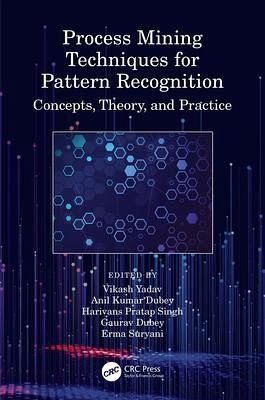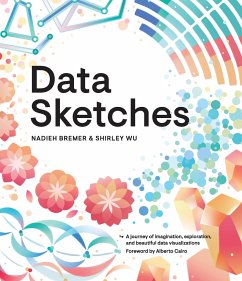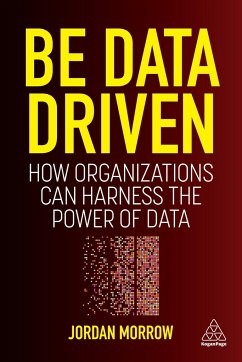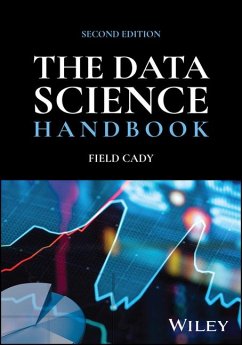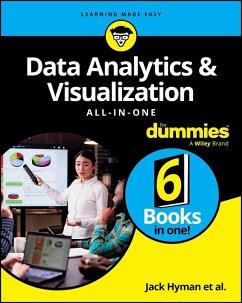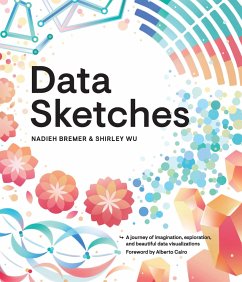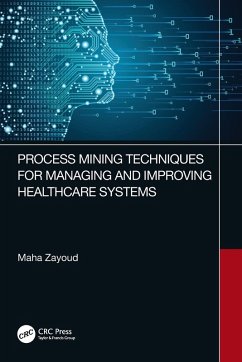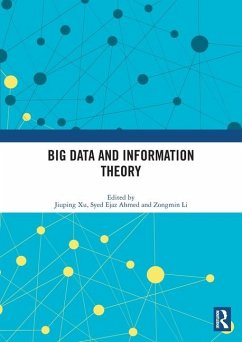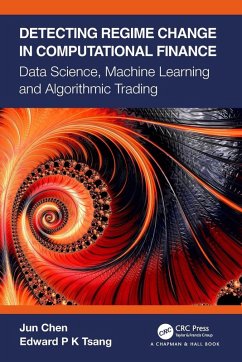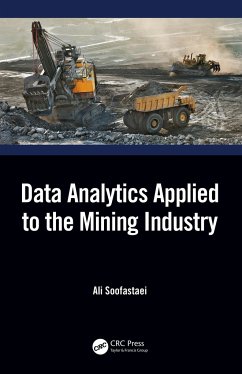Gebundenes Buch
Process Mining Techniques for Pattern Recognition
Concepts, Theory, and Practice
Herausgeber: Yadav, Vikash; Singh, Harivans Pratap; Dubey, Anil Kumar
Versandkostenfrei!
Versandfertig in 1-2 Wochen
Weitere Ausgaben:

PAYBACK Punkte
89 °P sammeln!




This book presents the theory and practice of Process Mining Techniques with a detailed focus on Pattern Recognition of diverse themes: Society, Science, Medical, Engineering, and business. The book discusses several perspectives of process mining techniques in the broader context of data science and big data approaches.
Vikash Yadav received B.Tech. Degree from Uttar Pradesh Technical University, Lucknow, India in 2009 and M.Tech. Degree from Motilal Nehru National Institute of Technology, Prayagraj, Allahabad, India in 2013. He obtained the Ph.D. degree from Dr. APJ Abdul Kalam Technical University, Lucknow, India in 2017. Dr. Yadav is working as in the Department of Technical Education, Uttar Pradesh, India. He has published more than 50 articles in reputed SCIE and Scopus index journals. His research interests include Image Processing, Data Mining and Machine Learning. Dr. Yadav is member of various technical research societies such as IEEE, ACM, CSI & IAENG etc. Anil Kumar Dubey received B.Tech. Degree from Uttar Pradesh Technical University Lucknow, India in 2008, and M.Tech. Degree from Rajasthan Technical University Kota, India in 2010. He obtained the Ph.D. degree from the Career Point University Kota, India in 2015. Dr. Dubey is an Assistant Professor (Selection Grade) in CSE department at ABES Engineering College, Ghaziabad, India. He has published several articles in reputed SCIE and Scopus index journals. His research interests include: Human Computer Interaction, Software Engineering and Artificial Intelligence. Dr. Dubey is member of various technical research societies such as SMIEEE, MACM, IEEE CS & LMISTE, CSTA, etc. Gaurav Dubey has a total academic and research experience of 20 years, currently he is working as Professor in CSE department in ABES Engineering College, Ghaziabad, U.P, since January 2018. He served as Assistant professor (ASET CSE) in Amity University Noida campus for 15 years (2002-2017). He published 6 patents and 33 research papers (02 SCI, 31 SCOPUS) in various International journal, Conferences and book chapters. He completed his Ph.D. in 2017 from Amity University, Noida in CSE domain (Research specialization Machine learning). He has various professional memberships like IEEE, ACM, IETE. Harivans Pratap Singh received B.Tech. Degree from Uttar Pradesh Technical University, Lucknow, India in 2008 and M.Tech. Degree from Uttarakhand Technical University, Dehradun, India in 2013. He is having total 12 years of experience in IT industry and Teaching all together. Work as corporate trainer in Tech Mahindra for Software Engineering & Software Testing (Manual & Automation). His research work includes Latent fingerprint indexing their segmentation and identification efficiency. Other area of interest is Software Testing, RPA (Robotics Process Automation) on UiPath Studio, UML et Design Patterns. Erma Suryani received her B.Sc. and M.T. degrees from the Institut Teknologi Sepuluh Nopember (ITS), Indonesia in 1994 and 2001, respectively. She obtained her Ph. D. degree from the National Taiwan University of Science and Technology (NTUST), Taiwan in 2010. She has been working as a professor at the Institut Teknologi Sepuluh Nopember (ITS), Indonesia since 2005. Her current research interests are model driven decision support systems, supply chain management, operation research, system dynamics with their applications in food security and sustainable transport.
Produktdetails
- Verlag: Taylor & Francis Ltd
- Seitenzahl: 182
- Erscheinungstermin: 28. Februar 2022
- Englisch
- Abmessung: 240mm x 161mm x 15mm
- Gewicht: 422g
- ISBN-13: 9780367770495
- ISBN-10: 0367770490
- Artikelnr.: 62607612
Herstellerkennzeichnung
Libri GmbH
Europaallee 1
36244 Bad Hersfeld
gpsr@libri.de
Für dieses Produkt wurde noch keine Bewertung abgegeben. Wir würden uns sehr freuen, wenn du die erste Bewertung schreibst!
Eine Bewertung schreiben
Eine Bewertung schreiben
Andere Kunden interessierten sich für




